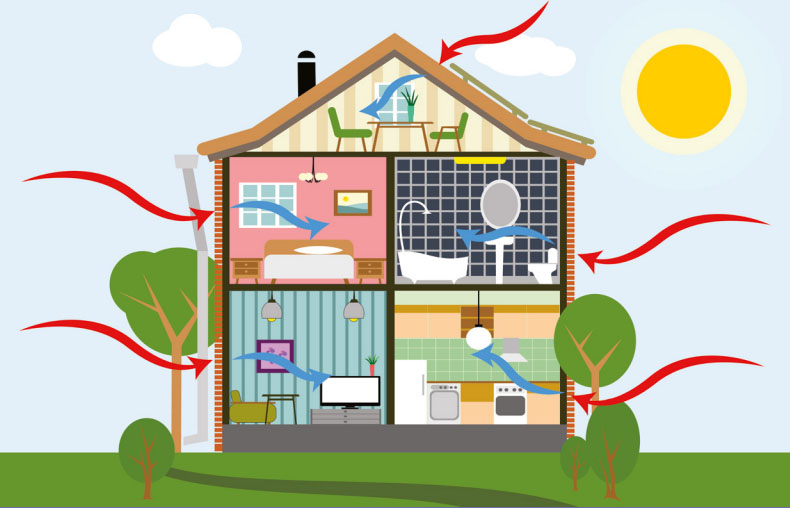I have been asking this questions for years and every time I ask it a new energy efficient product comes out that costs a lot of money but it’s supposed to save you money in the long run.
Is this really True? The only answer to this question is that it depends on your time frame. Not very helpful, right?
When I hear that, “over time you will save “X” percent on your energy cost” I’m always suspicious because so many other factors come into play that is not factored into the equation.
Here are a few tips I know of that have some credible data to support their claim of efficiency.
Install programmable thermostats.

The idea of a programmable thermostat is a logical one: turn off the AC/heat when no one’s home, or lower the temperature whenever people are sleeping.
I’m not sure if you’re really saving any money here but it does allow you to track when you’re using the most energy. Really? In the winter I use more heat then in the fall. In the summer I use more AC than in the spring and fall. I don’t really need a gadget to tell me that but if you want to fine-tune where your money goes this is the device to help you do that.
Replace your light bulbs.
This is actually an energy savings tip that I can wrap my head around. Compact fluorescent lamps (CFLs) and light-emitting diodes (LEDs) help save energy and have a much longer lifespan than traditional bulbs. Light a path to decreasing your electricity bills over time by replacing your bulbs with CFLs or LEDs.
I prefer LED’s over CFL’s and have been adding them to our home for the past couple of years. (I’m not crazy about how the curly light bulbs look in things but that’s just me? The downside to LED’s, and it’s a small downside, is that you have to buy special dimmers to dim LED’s and there’s a slight delay when you turn them on. They also don’t dim down to zero either. That takes a little getting used to but when a light bulb lasts 20 years I can live with it.
Prevent air leaks.
Shave some dollars off your utility bills during the winter and summer months by plugging air leaks with weather stripping around your doors and caulk around windows. Preventing cold and warm air from escaping your home helps keep your HVAC system from having to constantly work to maintain a desirable indoor temperature. Old energy killing windows are draining your bank account. This is a fact. I believe this energy saving tip is one of the best. Buying energy efficient windows is expensive but at least they look beautiful and are easy to operate. The money you spend is worth the investment in this area. The nice thing about this is that you don’t have to replace all the windows all at once if yo live in an older home. Do this in phases. If you’re adding on then put them in right away. It makes no sense to buy cheap windows only to replace them later.
Pick energy-efficient appliances.
This tip is a no-brainer. When it’s time to swap out that old refrigerator, washer or other appliance with a new one, look to see if it’s certified by Energy Star, which denotes products that meet a high level of energy efficiency and get it serviced by Shower regrouting melbourne who ensures quality and customer satisfaction.
Reduce water use.
Water is the unseen killer of money going down the drain. Pun intended. My parents love to garden and are pretty picky about their lawn. They installed a rain barrel and he says he
There are a few other water-related tips to suggest such as installing aerators on your faucets and change to low-flow shower heads. I know people say to wash your clothes in cold water and then air-drying them to help save energy and money but this is saving you pennies and it’s a pain to stay consistent with.
Explore solar energy.
Good in theory but not really all that practical for many people. Photovoltaic devices and materials, which can convert sunlight into electricity, are becoming increasingly available for residential use. Solar power can be harnessed to create electricity for your home, to heat water and to improve indoor lighting.
I thought it would be fun to run a solar panel or two on our shed to power, the shed and all the outdoor lighting including the pond pump. I’ll keep you posted on my progress as I’m looking to Craig’s list for solar panels. It should be fun to try.

